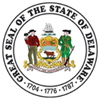Industrial Hygienist I (#MDAE01)
| ||||||||||||||||||||||||||||
| CLASS: MDAE01 |
EST:
7/28/2024 |
REV:
|
REPLACES JOB TITLE:
MDAZ06 |
||||||
| CLASS: MDAE02 |
EST:
7/28/2024 |
REV:
|
REPLACES JOB TITLE:
MDAZ06 |
||||||

 Notify Me when a Job Opens for the above position(s)
Notify Me when a Job Opens for the above position(s)